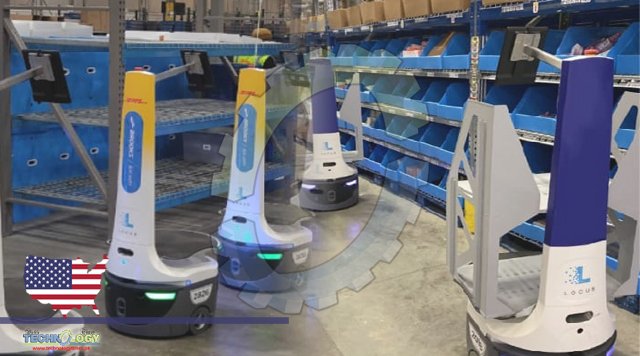Chain Broke. Robots , The companies behind e-commerce are embracing automation as the means of transcending the limitations of humans.

The people running companies that deliver all manner of products gathered in Philadelphia last week to sift through the lessons of the mayhem besieging the global supply chain. At the center of many proposed solutions: robots and other forms of automation. On the showroom floor, robot manufacturers demonstrated their latest models, offering them as efficiency-enhancing augments to warehouse workers.Chain Broke. Robots , Driverless trucks and drones commanded display space, advertising an unfolding era in which machinery will occupy a central place in bringing products to our homes. The companies depicted their technology as a way to save money on workers and optimize scheduling, while breaking down resistance to a future centered on evolving forms of automation. “It’s hard to get people motivated to do this work,” said Kary Zate, senior director of marketing communications at Locus Robotics, a leading manufacturer of autonomous mobile robots — carts that roll through warehouses, accompanying humans who select goods off shelves. Chain Broke. Robots, “People don’t want to do those jobs.” More than two years into the pandemic, persistent economic shocks have intensified traditional conflicts between employers and employees around the globe. Higher prices for energy, food and other goods — in part the result of enduring supply chain tangles — have prompted workers to demand higher wages, along with the right to continue working from home. Employers cite elevated costs for parts, raw materials and transportation in holding the line on pay, yielding a wave of strikes in countries like Britain.
The stakes are especially high for companies engaged in transporting goods. Their executives contend that the Great Supply Chain Disruption is largely the result of labor shortages. Ports are overwhelmed and retail shelves are short of goods because the supply chain has run out of people willing to drive trucks and move goods through warehouses, the argument goes. Some labor experts challenge such claims, while reframing worker shortages as an unwillingness by employers to pay enough to attract the needed numbers of people. Chain Broke. Robots, “This shortage narrative is industry-lobbying rhetoric,” said Steve Viscelli, an economic sociologist at the University of Pennsylvania and author of “The Big Rig: Trucking and the Decline of the American Dream.” “There is no shortage of truck drivers. Chain Broke. Robots , These are just really bad jobs.” A day spent wandering the Home Delivery World trade show inside the Pennsylvania Convention Center revealed how supply chain companies are pursuing automation and flexible staffing as antidotes to rising wages. They are eager to embrace robots as an alternative to human workers. Robots never get sick, not even in a pandemic. They never stay home to attend to their children. A large truck painted purple and white occupied a prime position on the showroom floor. It was a driverless delivery vehicle produced by Gatik, a Silicon Valley company that is running 30 of them between distribution centers and Walmart stores in Texas, Louisiana and Arkansas.Here was the fix to the difficulties of trucking firms in attracting and retaining drivers, said Richard Steiner, Gatik’s head of policy and communications.
Source: This news is originally published by nytimes